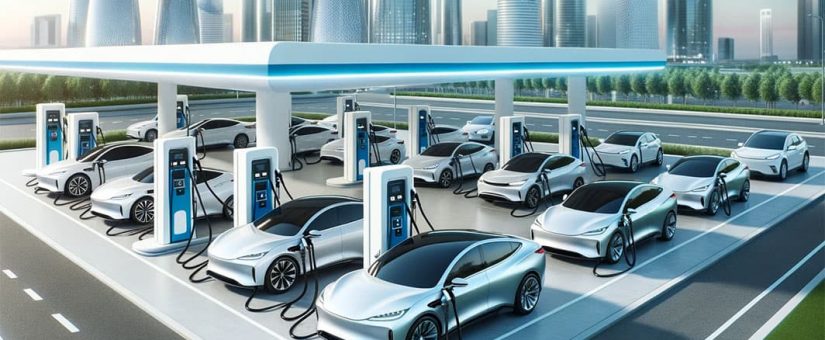
The Future of Transportation: Embracing Alternative Fuels
The global landscape is witnessing an unprecedented shift in its climate, marked by erratic weather patterns, rising sea levels, and frequent natural disasters. As evidence mounts pointing towards the significant role of human activities in driving these changes, the focus has turned towards industries known for their considerable carbon footprints. The transportation sector, a major player in the global greenhouse gas emissions game, finds itself at a crossroads. With traditional fossil fuels like petrol and diesel being primary culprits, there’s an urgent need to rethink our energy sources. Transitioning to alternative fuels is not just an environmental imperative; it is essential for the future of transportation, global economies, and the well-being of our planet. The potential rewards of such a transition extend beyond just ecological benefits, promising a more sustainable and secure energy landscape.
Understanding Alternative Fuels
The term ‘alternative fuels‘ is broad, encompassing a diverse array of energy sources distinct from the conventional fossil fuels that have powered our vehicles for over a century. This category includes biofuels derived from organic materials, electricity harnessed from renewable sources, hydrogen produced through various methods, compressed natural gas, and several others. Each of these alternative fuels presents its set of advantages and potential applications. For instance, electric vehicles, with their battery-powered systems, not only reduce greenhouse gas emissions but also promise quieter and more efficient operations. Hydrogen, on the other hand, is gaining traction for its high energy density, offering the potential for long driving ranges and quick refueling times comparable to conventional fuels. By delving deep into the characteristics and potential of each alternative, we can chart a roadmap tailored to the needs of different regions, climates, and transportation demands.
Benefits beyond the Environment
While most discussions around alternative fuels center on their environmental merits, it’s crucial to recognize the broader spectrum of benefits they bring to the table. At the heart of the alternative fuel movement is the promise of reducing, if not eliminating, our reliance on oil – a resource that has been the cause of geopolitical tensions and economic fluctuations. By diversifying our energy sources, we not only ensure a steadier energy supply but also protect economies from the volatile price swings of the oil market. Furthermore, the industries emerging around alternative fuels — from research and development to production and distribution — present a plethora of job opportunities. These new sectors promise to invigorate economies, stimulate local businesses, and provide avenues for innovation and entrepreneurship. As we transition away from fossil fuels, we’re not just paving the way for a cleaner planet, but also for a more resilient and prosperous global community.
Challenges and Solutions

The path to a world powered by alternative fuels is riddled with complexities and challenges. Infrastructure, for instance, remains a significant barrier. With gasoline stations dotting landscapes worldwide, building a similar network for alternative refueling or charging is a monumental task. Then there’s the challenge of technology. While strides have been made in battery technology and biofuel efficiency, there’s still room for significant improvements to make them competitive with traditional fuels in terms of cost, range, and convenience. Moreover, public perception and acceptance can’t be overlooked. Many are apprehensive about the reliability, safety, and practicality of alternative-fueled vehicles. However, every challenge presents an opportunity. Governments and private entities are pouring resources into R&D, leading to breakthroughs in storage, efficiency, and production. Incentives, both financial and regulatory, are being offered to early adopters. Grassroots movements and educational campaigns are playing pivotal roles in shifting public opinion. Through collaborative efforts, the hurdles facing alternative fuels can, and will, be overcome.
The Role of Vehicle Manufacturers
Automobile manufacturers are more than just stakeholders in this transition; they are its driving force. Their decisions, from R&D investments to marketing strategies, have profound impacts on the pace and direction of the shift to alternative fuels. Leading manufacturers are already unveiling electric, hydrogen-fueled, and hybrid models, signaling a commitment to a greener future. These efforts are complemented by advances in vehicle components. For instance, innovations like the best shocks for F250 not only improve ride comfort but also enhance the overall efficiency and lifespan of vehicles, making them more appealing to consumers. As these vehicles become more mainstream, their prices will drop, further accelerating their adoption.
Conclusion: The Road Ahead
As we navigate the early 21st century, we find ourselves at an inflection point. The decisions made today, by policymakers, industries, and individuals, will dictate the state of our planet for centuries to come. The move towards alternative fuels isn’t merely a trend; it’s a necessity. While challenges abound, so do opportunities. With the combined efforts of governments, industries, and the general public, a future dominated by clean, efficient, and sustainable transportation isn’t just possible; it’s inevitable.


